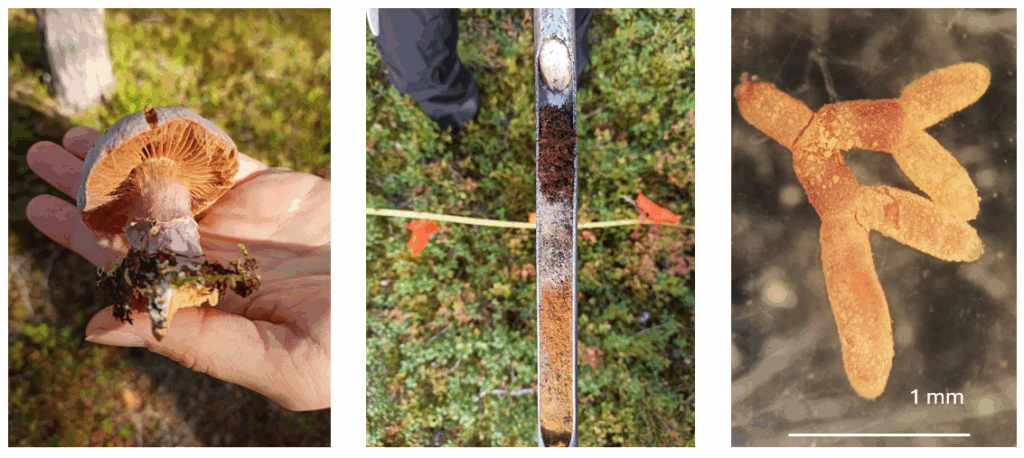Project Description
Supervisors
Professor Neil Hall, Earlham Institute
Dr Torde Varga, Royal Botanic Gardens, Kew
Dr Guillaume Delhaye, Royal Botanic Gardens, Kew
Dr Rowena Hill, Earlham Institute
Scientific Background
Ectomycorrhizal fungi (ECMF) are a crucial yet often overlooked group of organisms that play a key role in the functioning of terrestrial ecosystems. These fungi form symbiotic associations with plant root systems, where plants supply sugars to their fungal partners and, in return, ECMF provide essential nutrients and confer additional benefits, such as enhanced tolerance to drought and salinity. In the face of rapid environmental change, understanding how different organisms respond to shifting conditions is more important than ever. Despite the significance of ECMF for ecosystem functions, we still have a limited understanding of their functional and genetic diversity. This project aims to uncover functional differences among ECMF species at the genomic level by examining the variation in copy numbers of ecologically relevant genes, differential selective pressures on key genes, and changes in gene expression regulation related to nitrogen, phosphorus and carbon cycles in ecosystems.

Research Methodology
This studentship is ideally positioned between the Earlham Institute (EI) – which focuses on the application of the latest genomics – and the Royal Botanic Gardens Kew (RBGK) – which focuses on exploring and understanding fungal and plant diversity. The student will (1) use existing data to uncover functional differences of ECMF based on genomic signatures, (2) use whole-genome-sequencing to discover population-level adaptation to different environmental constraints and (3) conduct enzymatic activity and gene expression experiments to test functional differences of ECMF. To do this, the student will conduct fieldwork, microbiology experiments, comparative genomics and transcriptomic analyses.
Training
The integration of field-based, laboratory and bioinformatics training delivered by this project offers an exciting opportunity to develop a diverse transferable skillset of high value in both academia and industry. EI is at the forefront of genomics and bioinformatics, giving the student access to cutting-edge training opportunities in coding, data science and fundamental principles of computational analysis. The student will receive specialised training in fungal biology, including safe lab and fieldwork, courtesy of a global authority for fungal biology research, RGBK.
Person Specification
We seek an enthusiastic individual who is interested in fungal ecology and evolution, with prior experience in programming and basic statistical skills.
Acceptable first degree subjects: Biology
Project code: HALL_EI_ARIES26
